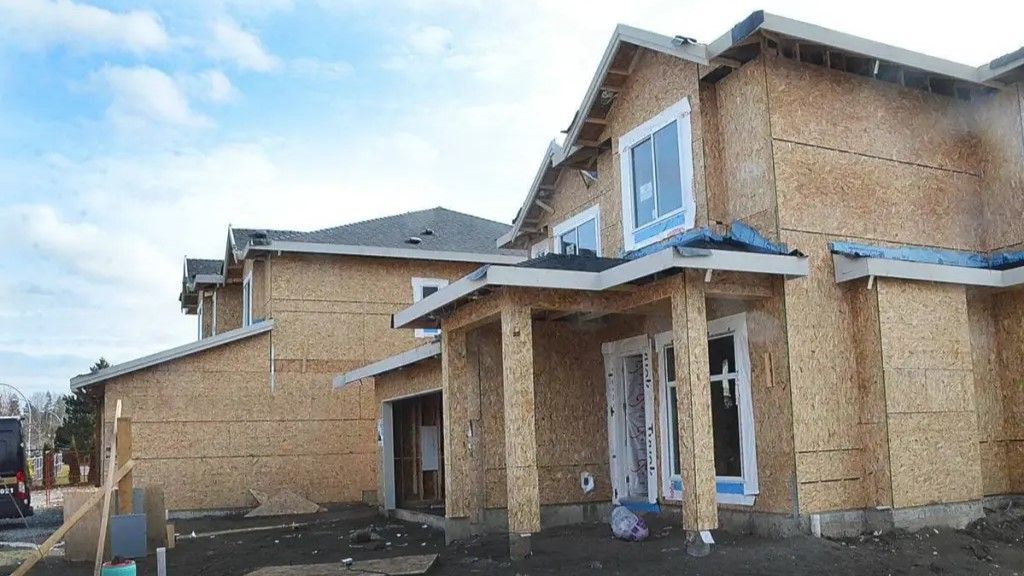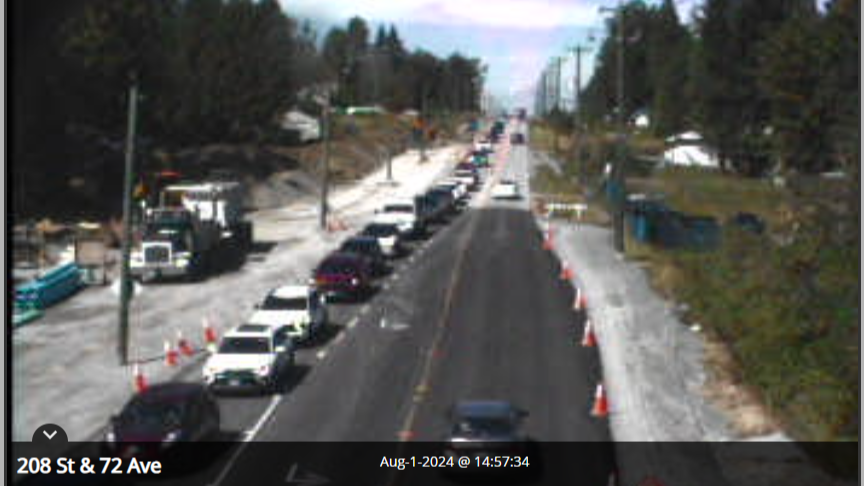Record-breaking number of new home listings in the Fraser Valley, while house prices soar in Metro Vancouver
Tiffany Crawford - Vancouver Sun • March 11, 2022

The benchmark price of a detached home in the Fraser Valley rose to nearly $1.7 million and over $2 million in Metro Vancouver. The average price of townhome in Metro is now over $1 million.
Homebuyers might be eyeing the Fraser Valley after a record volume of new listings in February, while home prices soared to even more unaffordable heights in Metro Vancouver, according to two real estate reports on Wednesday.
The previous highest February for new listings was 2016 with 3,283, according to the report. Of those, 1,824 homes were sold, which the board said was 39.2 per cent higher than January.
Board president Larry Anderson said although the market is “far from balanced,” it is encouraging to see more listings.
“We’re hopeful that this trend will be sustained leading into the spring season as more sellers come on stream to help soften the market and provide opportunities for the many buyers who’ve been sidelined over the past year and a half,” he said in a statement.
The board’s CEO, Baldev Gill, said buyers are looking for value for their real estate dollar, which the Fraser Valley market still provides.
Still, the benchmark price for a detached home in the Fraser Valley — at nearly $1.7 million — is out of range for many buyers. The cost of a detached home jumped 6.5 per cent from January and 43.6 per cent from February 2021, according to the report.
The benchmark price for a townhome in the region was $840,900, up 5.6 per cent over last month, while the cost of an apartment rose 7.1 per cent to $614,800.
Meantime, in Metro Vancouver — where the benchmark price of a detached house is now over $2 million — home sales were steady, with modest rises in listings, according to Real Estate Board of Greater Vancouver.
Still, the benchmark price for a detached home in the Fraser Valley — at nearly $1.7 million — is out of range for many buyers. The cost of a detached home jumped 6.5 per cent from January and 43.6 per cent from February 2021, according to the report.
The benchmark price for a townhome in the region was $840,900, up 5.6 per cent over last month, while the cost of an apartment rose 7.1 per cent to $614,800.
Meantime, in Metro Vancouver — where the benchmark price of a detached house is now over $2 million — home sales were steady, with modest rises in listings, according to Real Estate Board of Greater Vancouver.
The REBGV said there were 3,424 residential home sales last month, an 8.1 per cent decrease over the same month last year, and a 49.8 per cent rise from January.
Board chair Taylor Biggar said there has been modest uptick in home listings compared to last year in the Metro Vancouver housing market.
There were 5,471 new listings for detached, attached and apartment properties in Metro Vancouver last month, a 31.2 per cent rise compared with January.
“Despite having a higher volume of people listing their homes for sale in February, the region’s housing market remains significantly undersupplied, which has been pushing home prices to new highs month after month,” Biggar said, in a statement Wednesday.
The benchmark price for all residential properties in Metro Vancouver is just over $1.3 million, while the price for a detached home is $2,044,800, up 4.7 per cent from January and up 25 per cent over last February.
Board chair Taylor Biggar said there has been modest uptick in home listings compared to last year in the Metro Vancouver housing market.
There were 5,471 new listings for detached, attached and apartment properties in Metro Vancouver last month, a 31.2 per cent rise compared with January.
“Despite having a higher volume of people listing their homes for sale in February, the region’s housing market remains significantly undersupplied, which has been pushing home prices to new highs month after month,” Biggar said, in a statement Wednesday.
The benchmark price for all residential properties in Metro Vancouver is just over $1.3 million, while the price for a detached home is $2,044,800, up 4.7 per cent from January and up 25 per cent over last February.
Sales of detached homes in February 2022 reached 1,010, an 18 per cent decrease from the 1,231 detached sales recorded in February 2021. The benchmark price for detached properties is $2,044,800. This represents a 25 per cent rise from February 2021 and a 4.7 per cent rise compared to January 2022.
The benchmark price for an apartment climbed 5.4 per cent to $807,900 from a year earlier, while the cost of a townhouse is now over a million at $1,090,000, a 27.2 per cent rise from last year and a 5.9 per cent rise compared with January.
The Real Estate Board of Greater Vancouver covers most of Metro Vancouver but also Squamish, the Sunshine Coast and Whistler. The Fraser Valley board includes Surrey and Langley in Metro Vancouver as well as other areas of the Fraser Valley
The Real Estate Board of Greater Vancouver covers most of Metro Vancouver but also Squamish, the Sunshine Coast and Whistler. The Fraser Valley board includes Surrey and Langley in Metro Vancouver as well as other areas of the Fraser Valley







